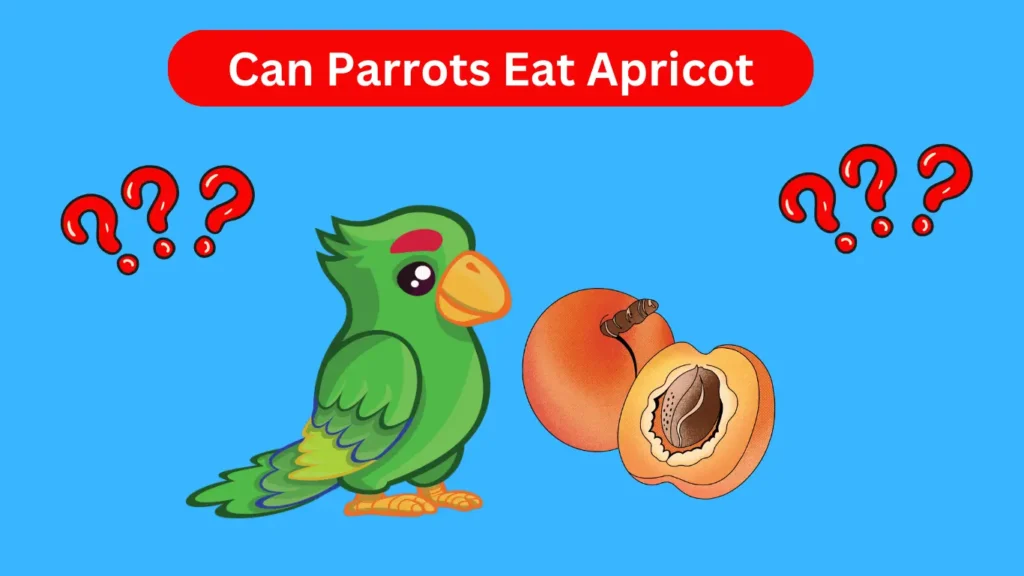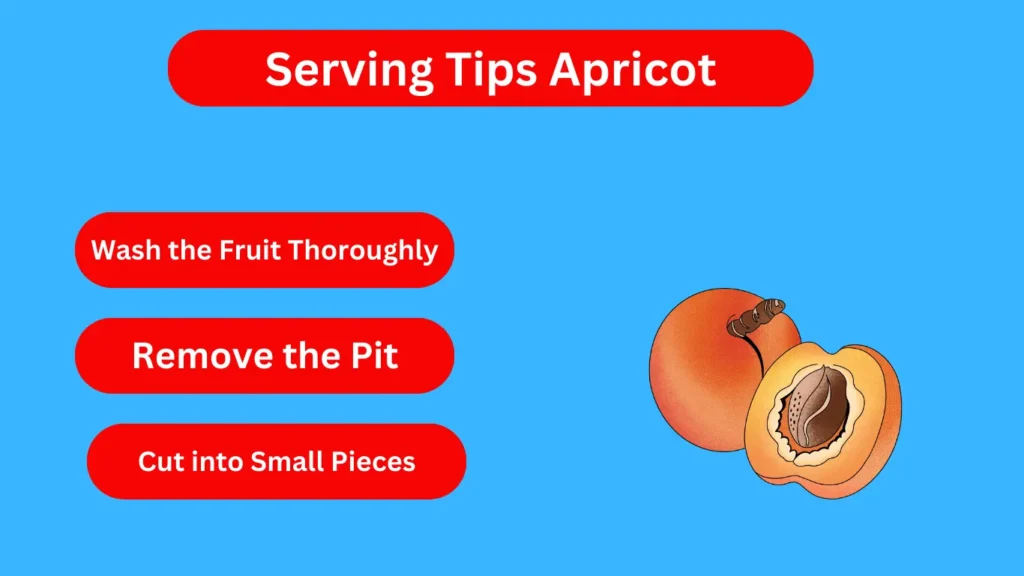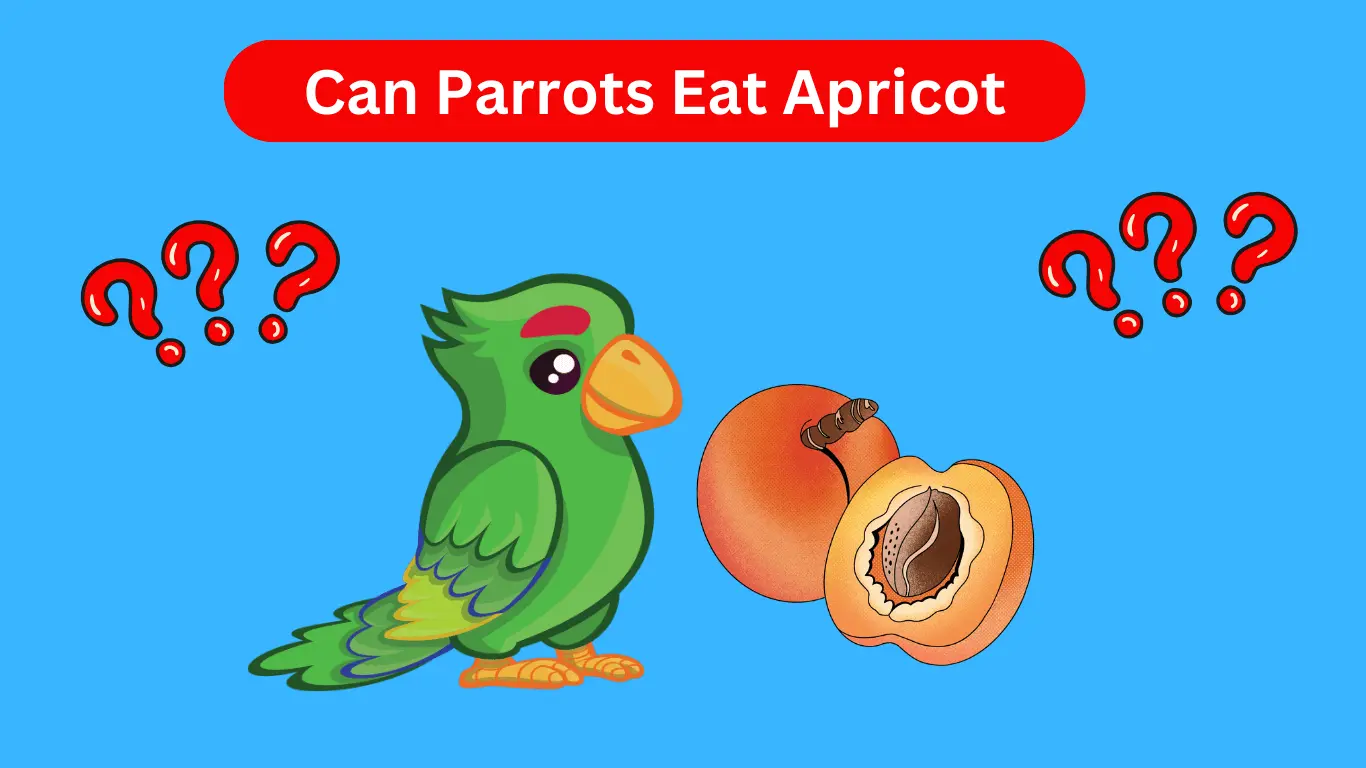Wondering if can parrots eat apricots? Discover the benefits, risks, and the safest ways to include apricots in your parrot’s diet. Parrots stay with people and are considered to be intelligent and colorful animals. Any parrot keeper would like his bird to be fed with the best quality food that will adequately nourish this wonderful pet as well as be free of dangers to the parrot’s health. Meals which include fruits are usually a large portion of a parrot’s diet, and provide crucial vitamin nourishment when the diet’s variety is also important.

Are Apricots Safe for Parrots?
Yes, but how often and what kind of apricots depends on a couple of precautions that need to be taken. Despite the point that apricot fruit is rather healthy for your parrot and contains lots of nutritious values, some portions of the apricot are rather dangerous. Who knows the basic difference between what or what is best for us to avoid and what is not?
Nutritional value of Apricots for Conures
Apricots are food parcels of vitamins and minerals that are well nutritious for parrots and humans alike. Here’s what makes apricots a valuable addition to your parrot’s diet:
Vitamin A: Crucial for good vision and bright colorful feathers hence the name bird cherries.
Vitamin C: It aids in the strengthening of the body’s immune system and meno patient stress.
Potassium: Aids in the normal functioning of muscles and nerves.
Fiber: Helps to overcome the problem associated with digestion of the foods consumed.
Antioxidants: Provides defense against the cell-damaging effects of FREE RADICALS.
Can Parrots Eat Dried Apricots?
Candied fruits in particular dried apricots can be referred to as the yummy replacement; while it is nutritious it has some demerits. Some foods will crystallize during the drying process, and natural sugars become concentrated; hence, one can end up taking a lot of sugar. Moreover, a part of the commercially dried apricot contains sulfur dioxide to help preserve it, and it is not safe for parrots.
If you decide to offer dried apricots:
- Choose brands that are not processed with sugar and other preservatives.
- You can hydrate them by dipping them in water before serving them to make it easier for your parrot to consume them.
- Individual portions only to minimize the effects of this substance on the health of its consumers.
How to Serve Fresh Apricots?

Wash the Fruit Thoroughly: Take out any pesticide or chemical that would be fatal to your parrot.
Remove the Pit: The kernels of apricots contain prussic acid which is fatal to birds.
Cut into Small Pieces: It terminates the choking risk and also makes it easier for your parrot to deal with the fruit.
Despite this note, fresh apricots present a delicious and healthy meal for your bird, packed with water and vitamins; just be sure not to give your bird too much in one sitting.
Are Apricot Pits Dangerous for Parrots?
Yes, apricot pits are toxic for parrots and should not be given in any circumstance possible. These pits contain cyanogenic compounds which when ingested release prussic acid or cyanide. Cyanides are toxic compounds regardless of the small concentrations of the compound, and the compounds can cause death. To keep your parrot safe One should always core the apricot before they are ready to eat or serve them. Get rid of the pit safely and place it in an area your bird cannot access.
How Often Can Parrots Eat Apricots?
It must however be pointed out that when feeding apricots to parrots moderation is the word to go by. Because of the inherent sugars, they should only be given in small quantities about the general recommended diet.
Recommended Frequency: Small parrots (budgies, cockatiels): That is if at all once or twice a week and in small amounts.
Larger parrots (African greys, macaws): Small servings of fresh produce up to once a day, percentage equivalents of three servings per week at small dishes, and 2-3 servings per week using slightly larger dishes. Including apricots in the range of fruits and vegetables you feed your parrot is the most effective approach to a parrot’s feeding.
Conclusion
Yes, it is perfectly safe to feed your parrot an apricot, as a delicious and healthy snack as long as you do so correctly. Eliminating the pit, portion control, and careful tracking of your parrot’s response to Golden Delicious will help to enhance your feathered friend’s diet.
FAQs
Can parrots eat apricot leaves?
Such fruits should not be fed to parrots because apricot leaves contain toxic cyanogenic compounds. These can be toxic and lethality threatening to the birds lives of the birds.
Can parrots eat apricot Seeds?
Well, I would not recommend conures to eat apricot seeds. They contain cyanide, which is toxic and because of this the food is often potentially lethal for birds.
Can parrots eat apricot in the winter?
Yes, birds can eat apricot in winter that must be fresh and not spoiled. The only thing you need to make sure is that you remove the pit and do not give them too much as it can lead to diarrhea and other tummy upsets.
Related Posts

Abubakr is a passionate parrot enthusiast based in Pakistan. He shares his life with his vibrant parrot, Peto, and is dedicated to understanding parrot nutrition, behavior, and training. Through his experiences with Peto, Abubakr aims to gain a deeper insight into the needs and personalities of parrots and to share his knowledge with fellow parrot lovers. With a focus on the nutrition of conures, Abubakr is excited to connect with like-minded individuals and learn from their experiences.
